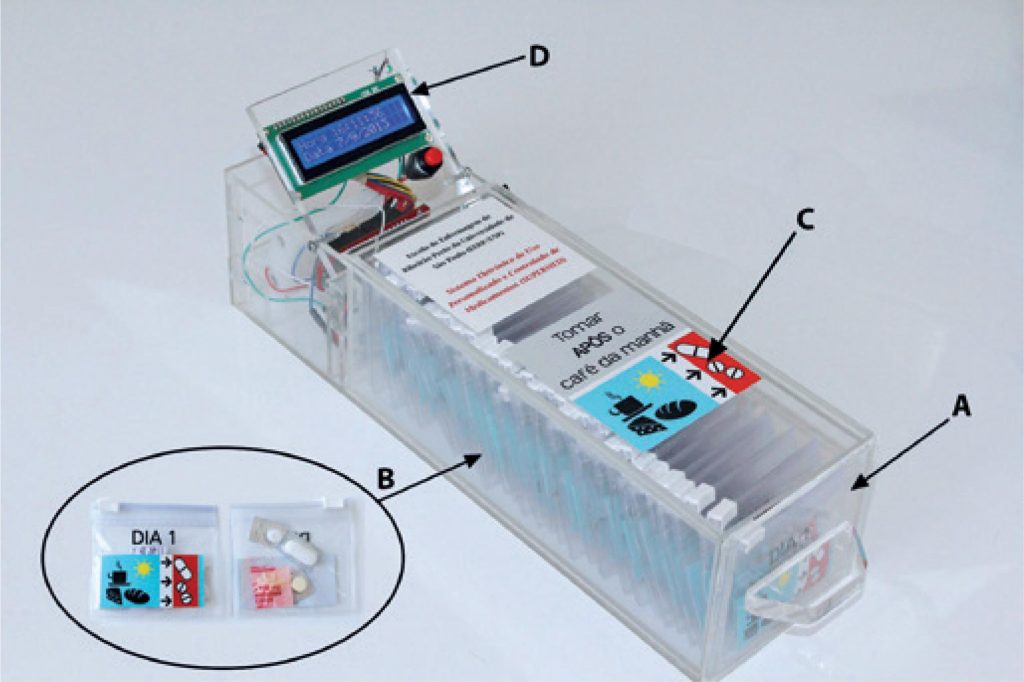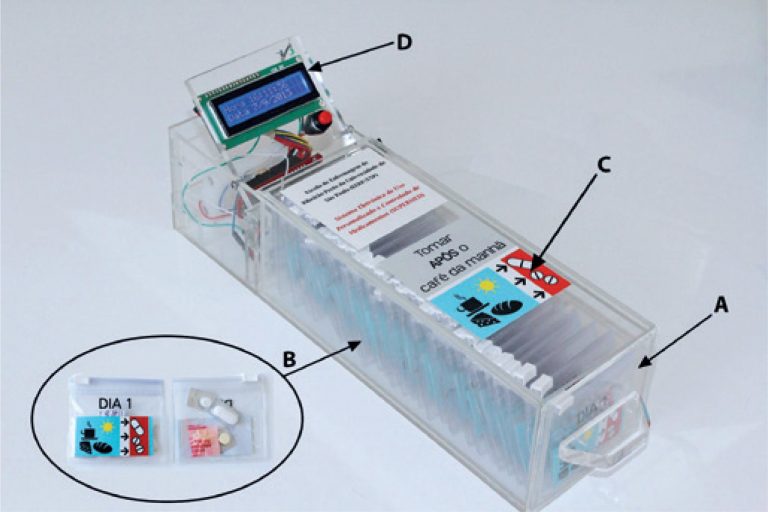einstein (São Paulo). 13/Sep/2021;19:eAO6011.
The use of an electronic medication organizer device with alarm to improve medication adherence of older adults with hypertension
DOI: 10.31744/einstein_journal/2021AO6011
ABSTRACT
Objective:
To examine whether the use of a monthly electronic medication organizer device equipped with an alarm clock, called Electronic System for Personal and Controlled Use of Medications (Supermed), improves medication adherence of older adults with hypertension.
Methods:
This is a quali-quantitative, prospective, before-and-after study performed with 32 older adult patients with diagnosis of hypertension, who were recruited at a Primary Care Unit in Brazil.
Results:
The main outcome measures were improvement of medication adherence and blood pressure control after intervention with Supermed. Regarding medication adherence, 81.2% of patients were “less adherent” in the pre-intervention period, and 96.9% were “more adherent” in the post-intervention period. This means that 78.1% of patients changed from “less adherent” to “more adherent” after the intervention with Supermed (p<0.001). The mean systolic and diastolic blood pressure differences between intervention day and post-intervention were 18.5mmHg (p<0.0001) and 4.3mmHg (p<0.007), respectively, and the differences between mean systolic and diastolic blood pressure between pre-intervention and post-intervention were 21.6mmHg (p<0.001) and 4.7mmHg (p<0.001) respectively.
Conclusion:
The use of Supermed significantly improved self-reported medication adherence and blood pressure control in a hypertensive older adult population.
Keywords: Drug utilization; Equipment and supplies; Reminder systems; Aged; Patient safety
1,190



